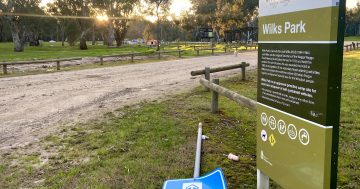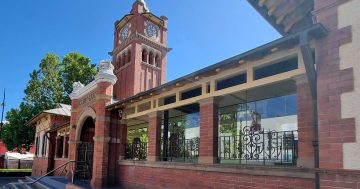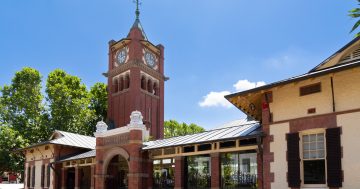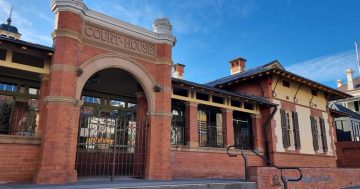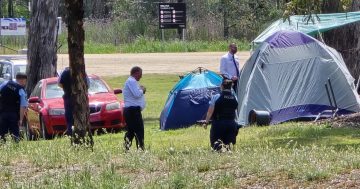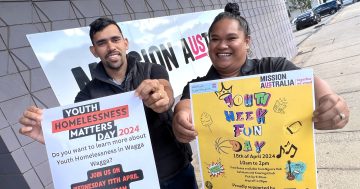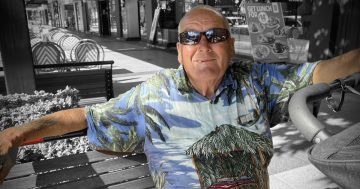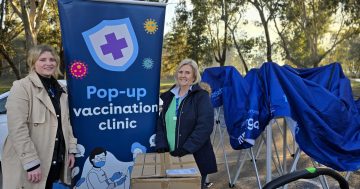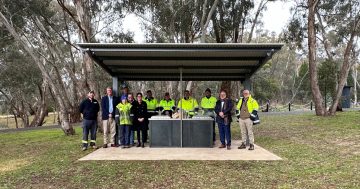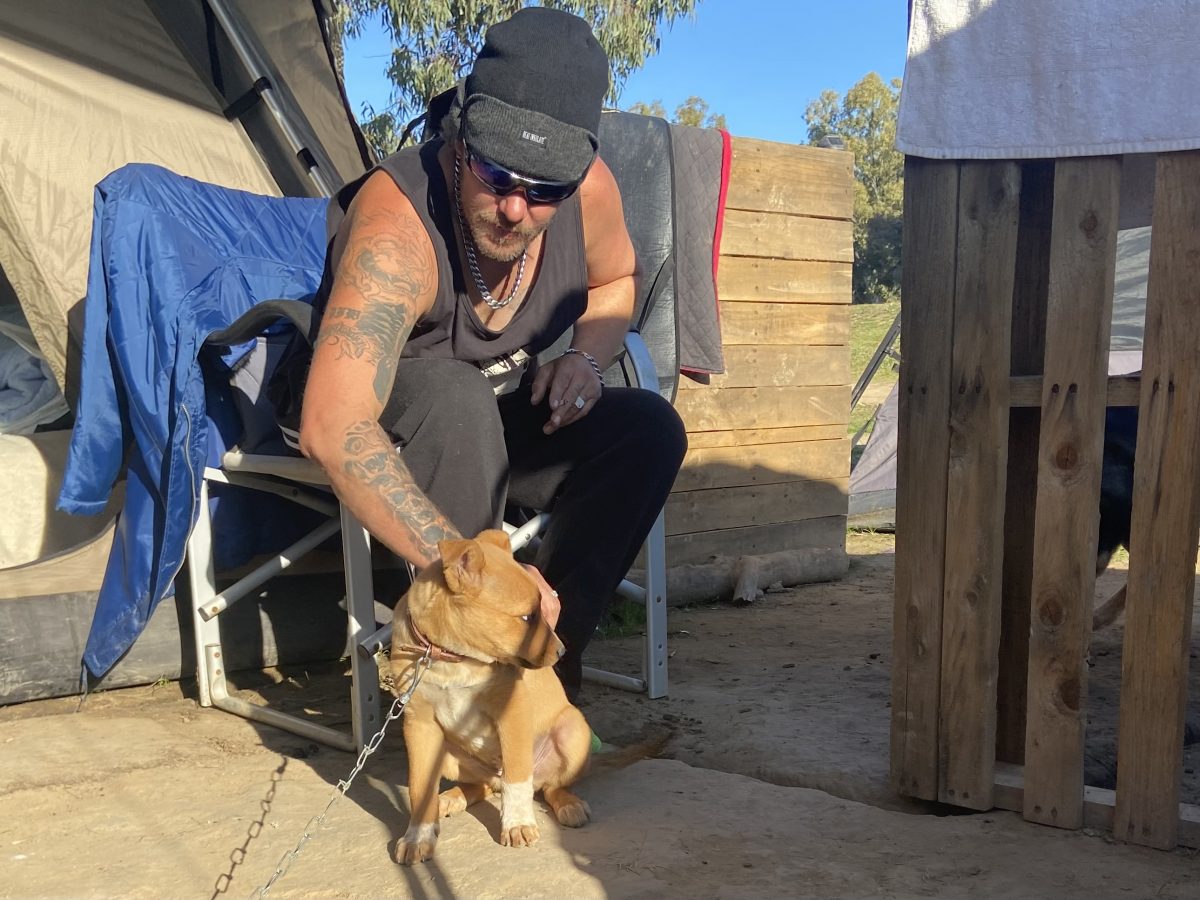
Aaron Buschmann says it’s been a whirlwind week since he posted his move-on notice on Facebook. Photo: Chris Roe.
As tensions ease between Wagga City Council and the State Government, it appears there is a positive outcome on the horizon with news that the Department of Communities and Justice (DCJ) will establish a “concierge” at Wilks Park.
It’s been just over a week since Aaron Buschmann posted a photo on social media of the move-on notice delivered to rough sleepers by Wagga City Council.
There followed a backlash against the council, who pointed the finger at the DCJ, who in turn said they had not been notified of the “eviction” but later walked it back to confirm that they did know and had been working on a solution with the council for some time.
For the small community of campers caught in the eye of the storm, it has been a whirlwind week.
“Overwhelming. We’re just exhausted but happy that we can stay,” said Mr Buschmann.
He and his wife Skye found themselves thrust into the limelight but said the wave of community support had been “beautiful” with deliveries of firewood, food and expressions of support giving them heart.
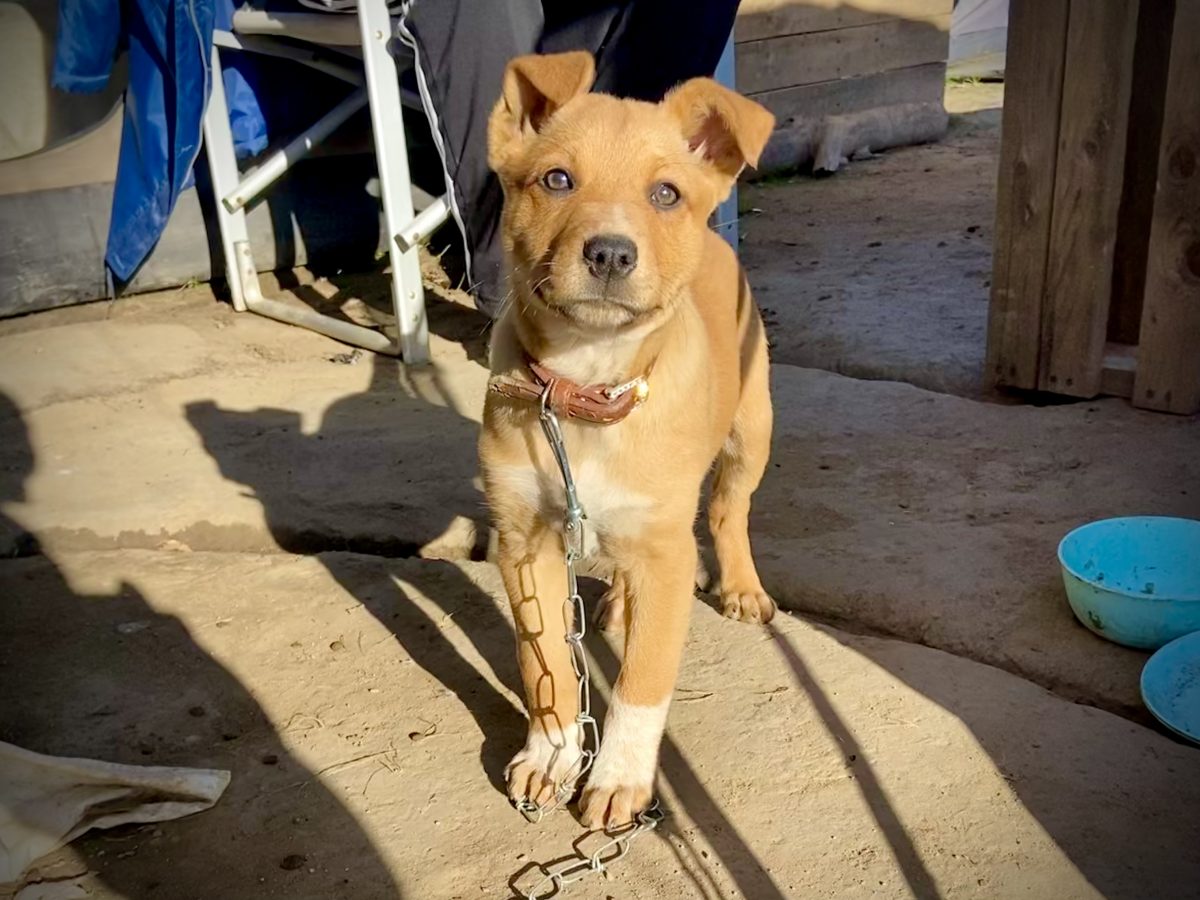
Pets can complicate the ability to move into temporary accommodation. Photo: Chris Roe.
James Toomy is the Deputy Secretary of Housing, Disability and District Services with the NSW Department of Communities and Justice and explained what the department is doing to support the rough sleepers in Wilks Park.
“We’ve been doing outreach into the park for some time and we’re going to continue doing that, but we’re also responding to some of the observations from the Wilks Park community and also in consultation with the council,” he said, but warned that there were no quick-fix solutions.
“It’s actually quite rare for someone to go from being a rough sleeper to straight into a long-term permanent tenancy because in many cases people have come out of longer term tenancies, and for different reasons have lost them.
“Then we need to start working with them again to reengage them with the process.”
He confirmed they were in the process of establishing a semi-permanent point of contact for the Wilks Park campers.
“There can be a reluctance for people to leave their stuff in the park and go and keep an appointment somewhere – and I can understand that – so what we are working on is developing a way of having some sort of static presence in the park,” he said.
“It could be from a static caravan, so that we’re actually there in the park and people can keep appointments with us in the park as opposed to going across town to offices.”
He explained a private space was important to maintain confidentiality where they could begin to unpack the needs of the community and find an ongoing solution.
“It may be as simple as assisting someone to get back to where they do have a home or family that they can live with. In other cases, we are able to provide people with temporary accommodation,” he said.
Through a series of appointments, case workers explore their circumstances and look at options like social housing, rental or bond assistance, hostels and also consider ongoing medical and social support.
But he said not everyone would choose to accept the options available to them.
“Sleeping in public is not a criminal act, so there’s no way that we can impel people into accommodation if they choose not to take it up,” he explained.
“And there will always be some people who have a preference for rough sleeping and the ‘community of the street’, which is their community and they will have a preference for that compared to living in stable accommodation.”
Mr Toomey also responded to community calls for “boarded-up” social housing in Wagga to be opened up to rough sleepers, explaining that it is often the case that tenants will return after an agreed absence.
“It’s not the case that every boarded-up house hasn’t got a tenancy,” he said.
“Because in some cases, people with the rightful tenancy on that place are not going to be in it for a period of time and actually request it to be boarded up first for security reasons.”
He also praised the efforts of the people supporting the Wilks Park community and offered a few suggestions of other ways concerned citizens could help them transition back into a home.
“They don’t necessarily have furniture or white goods or crockery and pots and pans,” Mr Toomey said. Connecting with local charities and Op Shops is a good start.
“It’s about saying to people, ‘what do you need’? As opposed to ‘I think I know what you need’ and this is what it is.
“Engage in a conversation with people and find out what it is they need and see if that’s something that you can do.”







